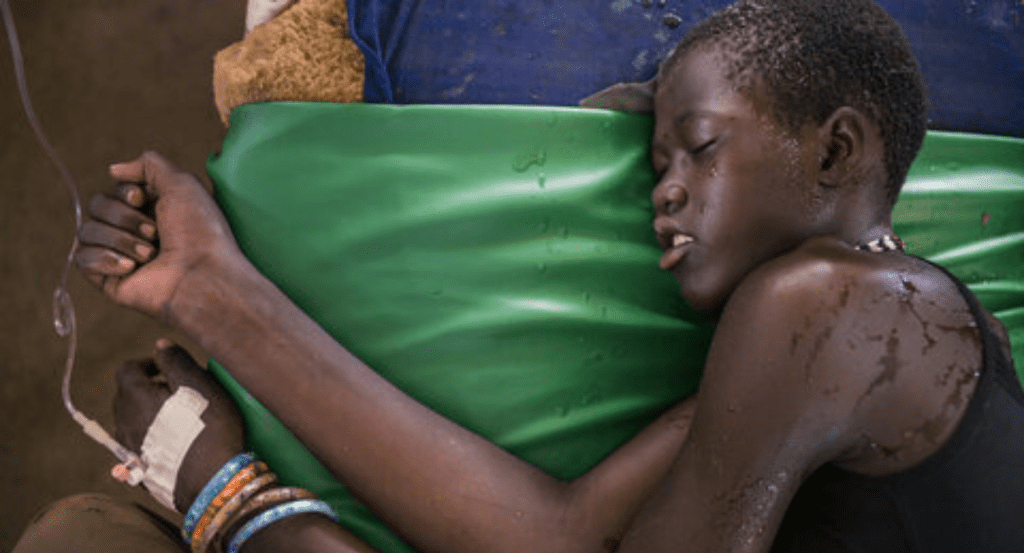In a critical public health response, Sudan has initiated the rollout of malaria vaccines to protect vulnerable children, marking a significant step in the fight against malaria in the region. This program follows a growing urgency to curb the spread of the disease, particularly as cases rise sharply across Sudan and South Sudan. The vaccine campaign, primarily targeting children, is expected to protect tens of thousands of young lives, with health officials focusing on areas with the highest incidence rates.
The malaria vaccine, RTS,S, is being distributed in collaboration with UNICEF, the World Health Organization (WHO), and Sudan’s Ministry of Health. Sudan is one of the first African nations to integrate malaria vaccination into its national immunization schedule. The decision comes as recent statistics show that malaria remains one of the leading causes of death for children under five in the country. UNICEF has reported that this initial phase aims to reach around 1 million children, with expansion plans to cover additional regions over the next few years.
Meanwhile, neighboring South Sudan has reported alarming fatalities due to the rapid spread of malaria. In just the past two weeks, 41 people have died from malaria-related complications, 36 of whom were children. The escalating numbers have further highlighted the pressing need for preventive measures, especially in high-risk zones. Both Sudan and South Sudan face similar environmental and socioeconomic challenges that exacerbate the spread of malaria, including inadequate healthcare infrastructure, widespread poverty, and seasonal flooding that creates optimal breeding conditions for malaria-carrying mosquitoes.
Sudanese health officials believe that introducing the malaria vaccine could significantly reduce the disease burden, especially for young children. The RTS,S vaccine, proven to lower malaria-related deaths and hospitalizations in children by around 30%, is a promising tool for the region. Public health experts are also pairing the vaccine initiative with other preventive measures, including mosquito net distributions, awareness campaigns, and improved diagnostic and treatment services.
The international health community has shown strong support for Sudan’s malaria vaccine rollout, viewing it as a potential model for other African nations. Experts hope the campaign will not only reduce malaria’s toll in Sudan but also underscore the importance of expanded vaccine access across malaria-endemic countries.




















